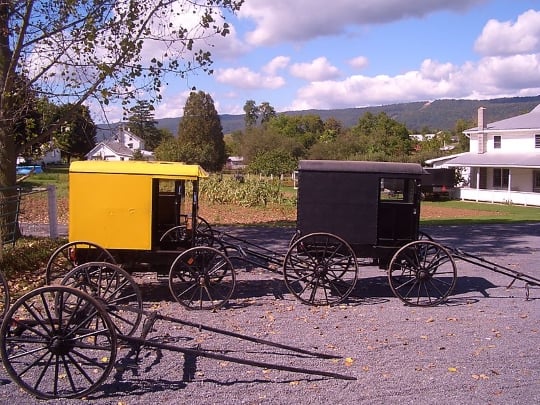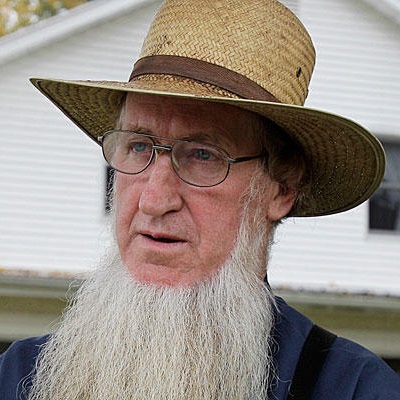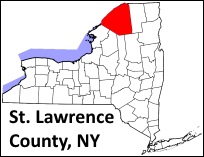Supreme Court Sides With Amish In Gray Water Case
The Amish plaintiffs appealed this case to the Supreme Court back in March (if you’re new to this story, here’s a summary of the issue, and some further explanation shared with us by expert witness Karen Johnson-Weiner).
At the time, it was unclear whether it would even be heard. And it seemed unlikely, as the Supreme Court only hears 100 to 150 of the roughly 7,000 cases it is asked to review each year. Not only was the case heard, but the Court sided with the Amish. From USA Today:
WASHINGTON – The Supreme Court on Friday sided with an Amish community that is challenging on religious grounds a Minnesota county’s requirement that its members install septic systems to treat wastewater.
The high court overturned a state court ruling that had sided with the county and asked the state’s courts to review the case again in light of its recent ruling in favor of a Catholic foster care agency in Philadelphia that refused to screen same-sex couples.
Fillmore County in 2013 began requiring that the Swartzentruber Amish, who reject modern technology as part of their religion, install septic systems to treat the wastewater from laundry, bathing and cooking – known as gray water. The Amish instead want to reuse that water for irrigation or treat it through less sophisticated systems.
In an opinion concurring with the Supreme Court’s decision, Associate Justice Neil Gorsuch said the state courts misread a federal law dealing with how such land use regulations may be applied to religious entities. It was the latest example of the Supreme Court siding with a claim of religious freedom in a contest with an asserted governmental interest.
“County officials have subjected the Amish to threats of reprisals and inspections of their homes and farms. They have attacked the sincerity of the Amish’s faith,” Gorsuch wrote. “In this country, neither the Amish nor anyone else should have to choose between their farms and their faith.”
Further explanation from the article (and for the legally-inclined, the relevant Supreme Court document is here):
As in the Philadelphia case, Gorsuch said that the septic system law at issue in Minnesota had an exception and, because of that, courts need to heavily scrutinize a law that imposes a burden on religious organizations or activities while offering exceptions to secular ones.
“In Minnesota,” Gorsuch wrote, “those who ‘hand-carr[y]’ their gray water are allowed to discharge it onto the land directly.”
A law signed by President Bill Clinton in 2000 requires governments to tread carefully when zoning and other property regulations affect religious entities. To enforce such regulations, a government – such as a county – must have a compelling interest to do so and its rule must be as narrowly tailored as possible to serve that interest.
The Amish plaintiffs said that while Fillmore County has a general interest in ensuring wastewater is treated, it isn’t necessary on the rural farms where they live. They also said 20 other states allow gray water reuse systems in place of septic tanks. Raw sewage is not at issue because the community uses outhouses rather than toilets.
It’s not often a case involving the Amish makes its way all the way to the highest court in the land. The most famous example is Wisconsin v. Yoder which enabled Amish parental control over their children’s schooling. The specifics of this particular case appear to apply to a much more limited segment of the Amish. Nonetheless it is remarkable that it went this far. Will this bring a close to this issue for these Amish, which got its start over 15 years ago?






National Implications
That ruling will seemingly have national Implications for anyone who on religious grounds at least, wants to live primitively. Tennessee for example does not allow for gray water disposal anywhere other than in a septic system. But, the local health department inspector personally has a don’t ask, don’t tell attitude. So the state regulation is not enforced, at least in the area that I live at. I run my gray water out to my garden, as do a lot of my neighbors. And it has never been proven that gray water does any harm to the environment. And look at places like New York City, that have, and continue to, dump it’s sewage directly into the rivers, which lead out to the ocean, a practice that has gone on forever without any interference from any health or environmental agency.
Gray water
I’m so glad the highest court in the land sided with the Amish and that they chose to fight it that far. It could turn out to be a very important precedent for all farmers. The reusing of gray water has been going on since soap was invented. I learned from my grandfather that there is something in dish soap that is actually good for plants. I don’t remember ever not reusing it! Its one of a child’s first chore to carry out the wash water. Congratulations to the Amish who saw this through for all Amish generations to come!
Well done Neil Gorsuch.
A perfect example of a imperfect government abusing it’s power and doing so for no good reason. This time it’s the local/county gov’t that is wrong.
They were literally threatening the Amish to get them to comply. How pathetic. How can a gov’t behave in such an immoral way?
The county couldn’t even give a compelling reason for forcing the AMish to change their ways. Other than wanting the Amish to assimilate, or, in better terms, stop being Amish and be like the everyone else.
Gray water is used all over the country. And world for that matter.
Gray water is literally safe when used as these Amish have.
Sometimes counties do this to push a people off their land. Force the AMish to install systems that raise taxes. Making it difficult for them to survive, financially. So the land would be sold. Then developed. More money for the local gov’t. Local construction companies getting paid. Local gov’t officials getting paid. Sadly, it’s often all about the money.
This was such a simple and obvious case. The county was wrong and handled it so poorly. The lower courts didn’t even know the law actually supported the Amish in this case. How sad.
Watch how the county responds. That might be a sign of their true motivation….
Court Ruling
Add this to the ever lengthening list of Amish Waivers and double standards.
How would our society function if everybody played the “Against my Religion” card whenever we don’t want to comply with the rules?
Remember this when an Amish settlement springs up near you.
In many ways they are not “team” players.
They desire to be separate and not participate or contribute to the nation, state or local community. Yet they enjoy all that others have sacrificed and worked for.
Since their arrival arrival here, I have never seen any evangelism, participation in community events, flying an American flag, celebration of U.S. holidays.
Often I feel they disparage us as lesser Christians but love our business.
What I see most is their desire and lust for gaining control of land.
Something tells me this guy isn’t a fan of the Amish.
Court Ruling
Will this ruling now become a national precedent?
In my county thousands have had to spend 12,000+ to put in approved septic systems to protect our water supply.
Many people face financial hardship.
It appears that to avoid this cost you should object on religious grounds and you will not have to comply.
Double standard.